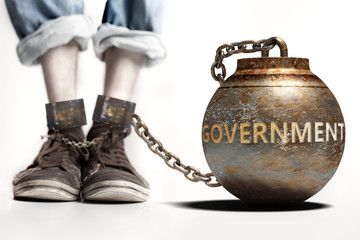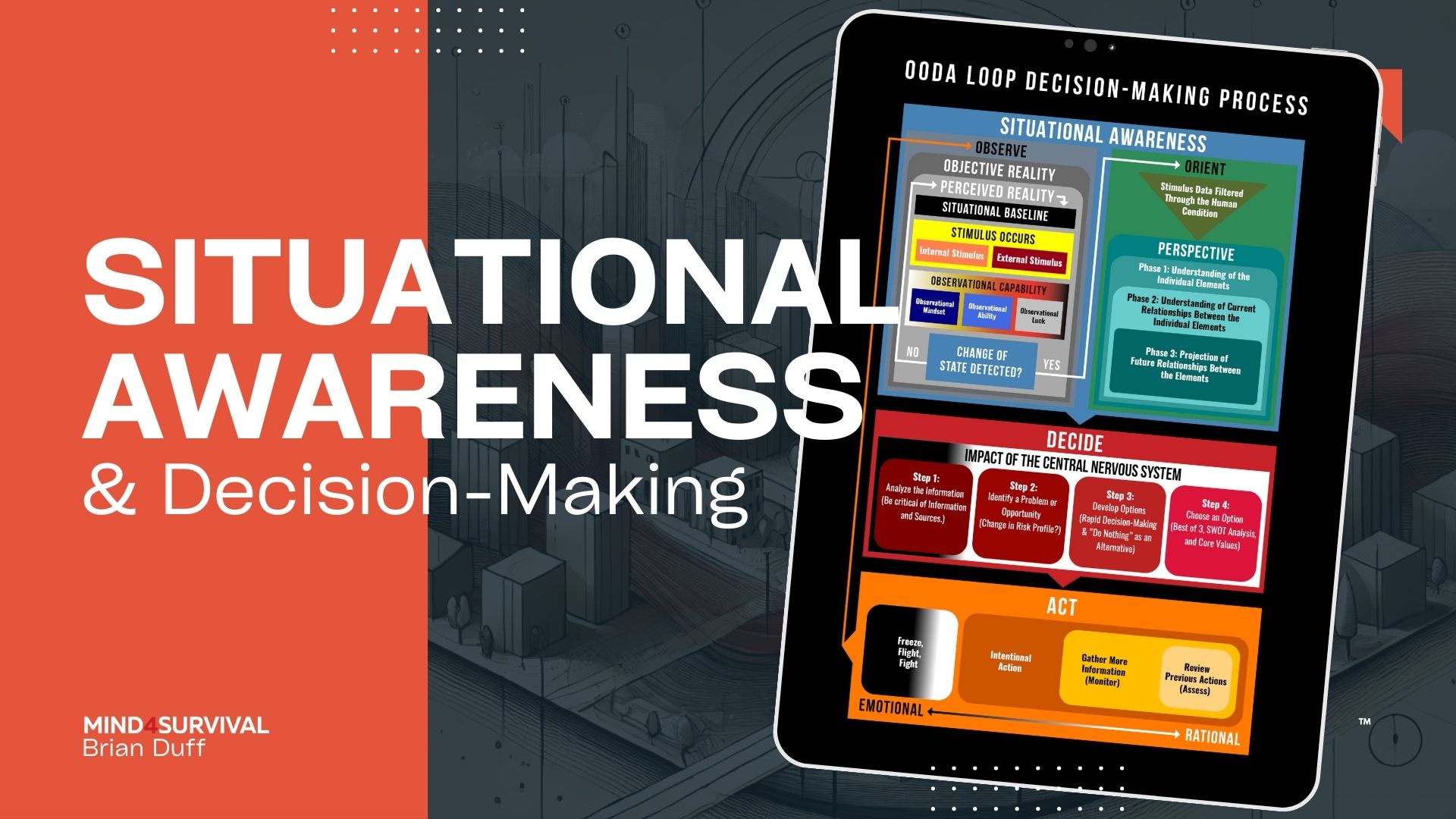One of These Things Is Absolutely Not Like the Others

This article was originally published by George Ford Smith at The Mises Institute.
“If human equality is to be forever averted—if the High, as we have called them, are to keep their places permanently—then the prevailing mental condition must be controlled insanity.”—George Orwell, 1984
“In contrast to all other thinkers, left, right, or in-between, the libertarian refuses to give the State the moral sanction to commit actions that almost everyone agrees would be immoral, illegal, and criminal if committed by any person or group in society.”—Murray Rothbard, For a New Liberty: The Libertarian Manifesto
The government, federal or otherwise, has no business model because it is not a business. We know this at the outset because the government does not compete on the market for people’s money, as every other business must do. As a monopoly of violence, it seizes the money it needs through taxes and monetary inflation. As long as the government doesn’t get carried away by taxing and inflating too much, most people—some of whom call themselves libertarians—regard this setup as the best we can hope for.
In “America Loves Paying Taxes,” Vanessa Williamson writes:
In national surveys, over 95 percent of Americans agree with the statement, “It is every American’s civic duty to pay their fair share of taxes,” and more than half see taxpaying as “very patriotic.” One man from Ohio called it a responsibility to “the Founding Fathers.” A former Marine said taxpaying is “the cost of being an American,” while a man from California said tax avoidance is the equivalent of “shorting the country.”
Comforting, isn’t it?
Every business—if it is to stay in business—must produce a profit. It must make more money than it spends through serving voluntary customers. Competition will force companies to keep their prices as low as possible while still bringing in enough revenue to make a profit. Without a sound business plan that adjusts to attacks from competition and changing consumer preferences, a firm’s existence will be short-lived.
Consider the once-strong demand for MS-DOS personal computer applications in the early 1980s (I had a side business writing them). When the Mac came along in 1984 with its Smalltalk-inspired UI, Microsoft was caught flat-footed. Users no longer had to type cryptic commands they couldn’t remember at a blinking cursor; they could do everything they wanted from pull-down menus and a mouse. The Mac was the computer “for the rest of us.” Bill Gates immediately ordered the creation of a DOS shell he called Interface Manager, later changed to Windows. It lacked the elegance of the Mac, but it sustained the company’s leadership until they created a Windows OS from scratch.
Apple helped Gates by failing to include a killer business app with their radical offering. Critics said the little Mac couldn’t do anything except paint pretty pictures. And at a price of $2,495 ($7,760.75 in 2025), it sold poorly. Later, when Steve Jobs returned to Apple after his dismissal by the company’s board, he decided to empower individual users instead of hidebound organizations and developed a successful marketing strategy with the lowercase “i” and colorful, more powerful home computers. Apple’s Jony Ive-designed iMac, introduced on May 6, 1998, reversed the company’s fortunes.
Two years, eight months, and four days later on April 19, 2001, Apple announced that it had shipped its five millionth iMac. That makes approximately 5,112 iMacs sold every day. It’s one iMac every 1.183 seconds.
Assuming he’s allowed to vote freely with his money, the consumer always benefits from innovation and competition. Companies gathering the most votes stay around and possibly grow, but are always subject to the changing preferences of the ones putting their money down.
One of These Things is Absolutely Different
One could argue that the government does indeed have a “business plan,” and it is straightforward and unique. Having far more guns than other organizations and virtually limitless latitude to use them, it gravitates naturally toward force rather than persuasion. When it needs more money, it doesn’t innovate or economize; it plunders the public. Resist and you could end up dead, and everyone understands this. Judging it as we would a business organization, it stands out starkly as criminal.
Apple, Microsoft, and over 12,500,000 other companies would never get away with forcing people to deal with them at prices they dictate. Don’t like the iPhone’s price? You don’t have to buy it. Don’t like any pocket phone (as with my antiquated friend in the Ozarks)? You’re free not to buy any. But with the government, that relationship changes.
Should we wonder why our economy has become a house of cards when we have a government-provided counterfeiter directing money matters? Fiat money inflation is the heart and soul of the government’s “business plan.” In conjunction with the Fed, it creates gargantuan mountains of debt it never worries about because it’s powerful enough to force taxpayers to pay the interest on it.
Do We Need Gangsters Running Our Lives?
The argument that the kind of government we have—a monopoly of violence—is necessary is a flagrant violation of the Declaration’s self-evident truths. How did it happen that the government acquired this feature? Where did it get that authority? Who voted for it?
Mises in Omnipotent Government writes:
With human nature as it is, the state is a necessary and indispensable institution. The state is, if properly administered, the foundation of society, of human coöperation and civilization. It is the most beneficial and most useful instrument in the endeavors of man to promote human happiness and welfare. But it is a tool and a means only, not the ultimate goal. It is not God. It is simply compulsion and coercion; it is the police power.
Since we can’t recruit angels, “Human nature as it is” applies to those conducting state affairs, too, which is why we’ve seen so few Ron Pauls and an onslaught of Joe Bidens. No other entity in society possesses this power. Does humanity depend on a society built on privileges? And where is history’s “properly administered” state hiding?
Later in the same book, Mises writes,
When the men in office and their methods no longer please the majority of the nation, they will—in the next election—be eliminated, and replaced by other men and another system.
Not surprisingly, the replacements have been disappointing. Each administration—driven by an unelected cabal—takes government overreach as normal while enhancing the power and pelf of the elites. If the majority love big government, and the country’s schools are promoting it, voting won’t fix anything. And, as we’ve seen recently, voting has been a coup under the cover of legitimacy.
The popular idea that the free market is subject to failure is a fallacy, while government failures constitute mankind’s history. In A Critique of Interventionism, Mises wrote that, “Measures that are taken for the purpose of preserving and securing the private property order are not interventions in this sense.” Mises was arguing against “the impracticability of anarchism,” a classical liberal position that acknowledges the state as a necessary evil. It turns out the state is impracticable, at least for the welfare of the governed.
Rothbard’s 1973 For a New Liberty: A Libertarian Manifesto and other writings eliminated the “necessary evil” excuse and offered a consistent view of a stateless laissez-faire society in its place.
Read the full article here









